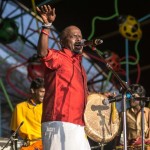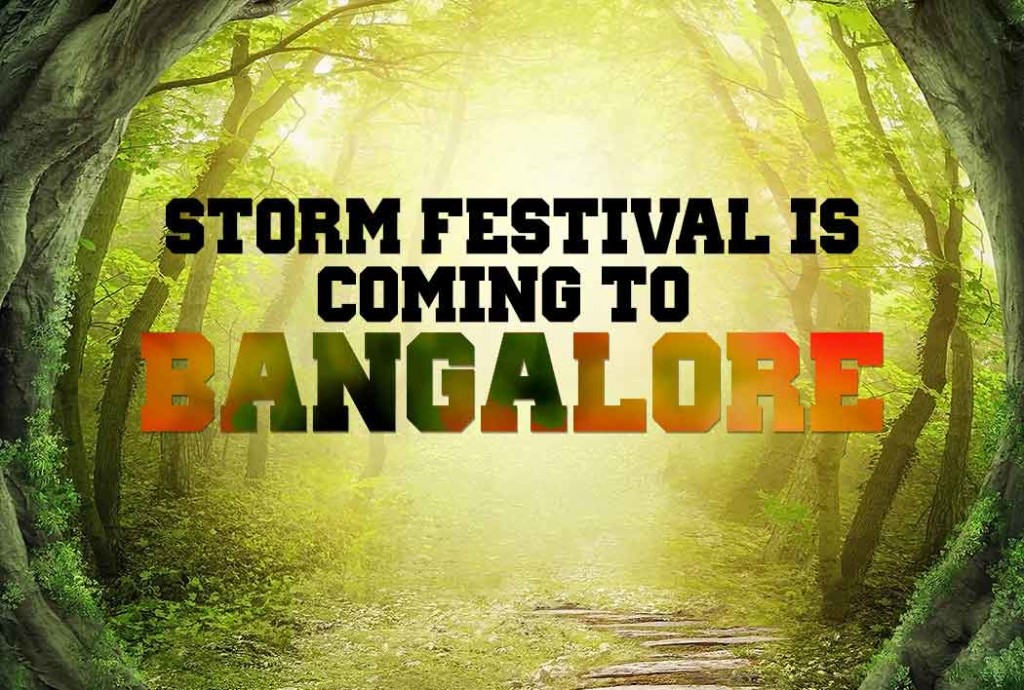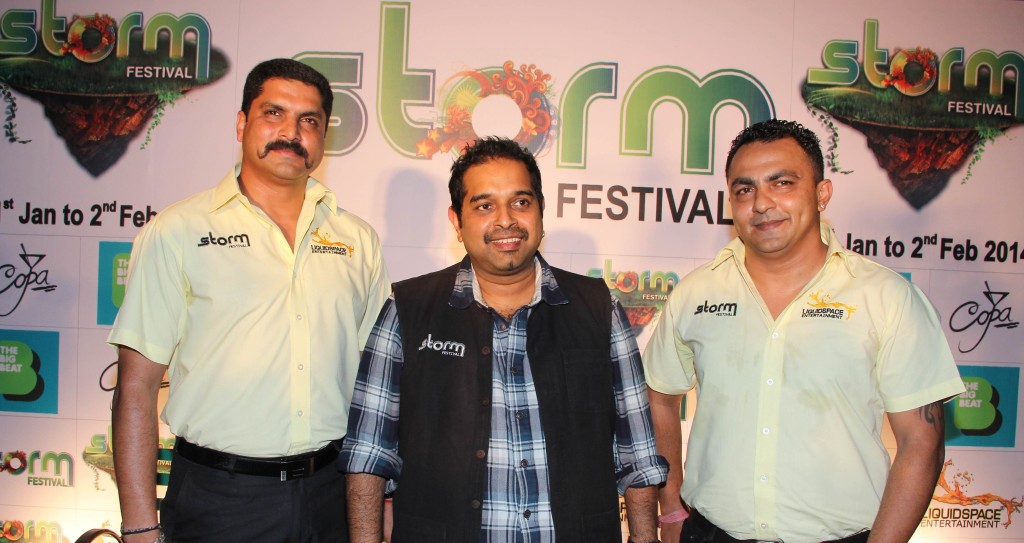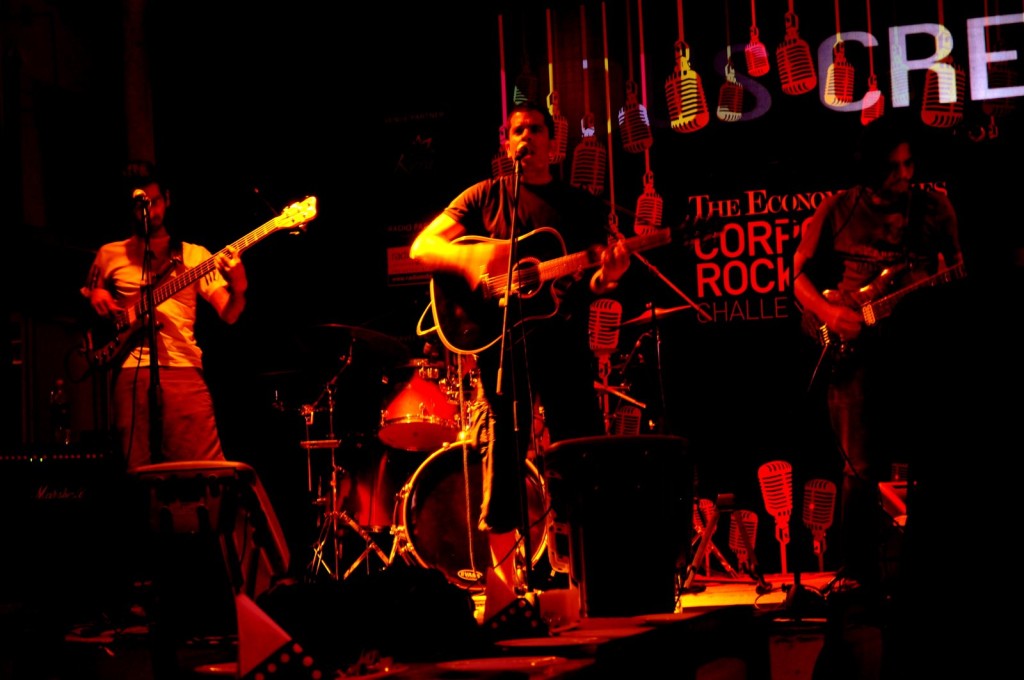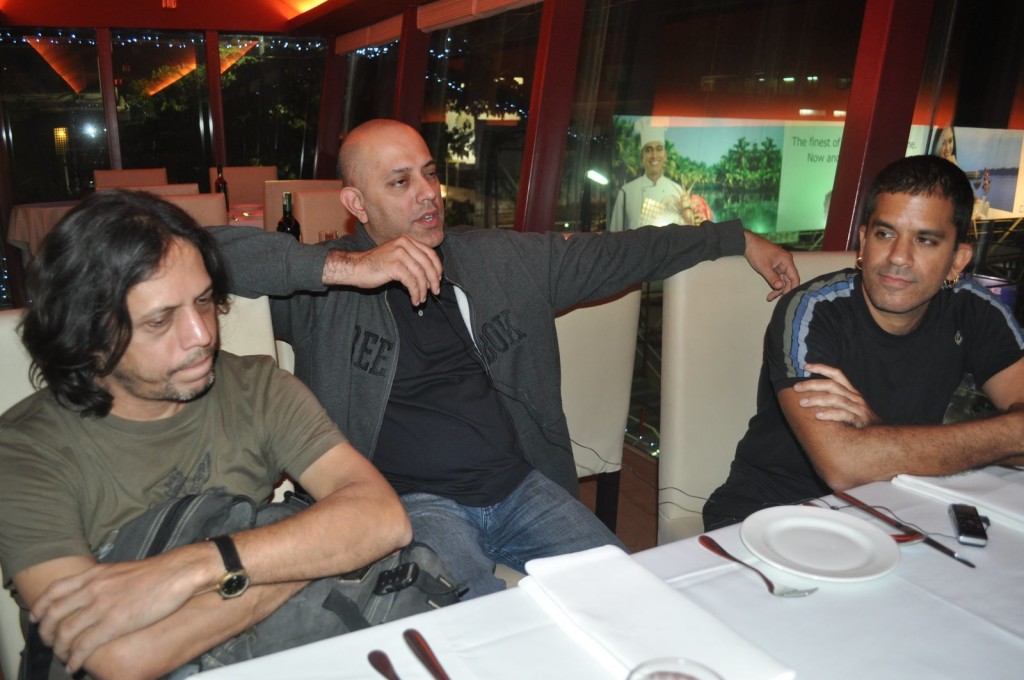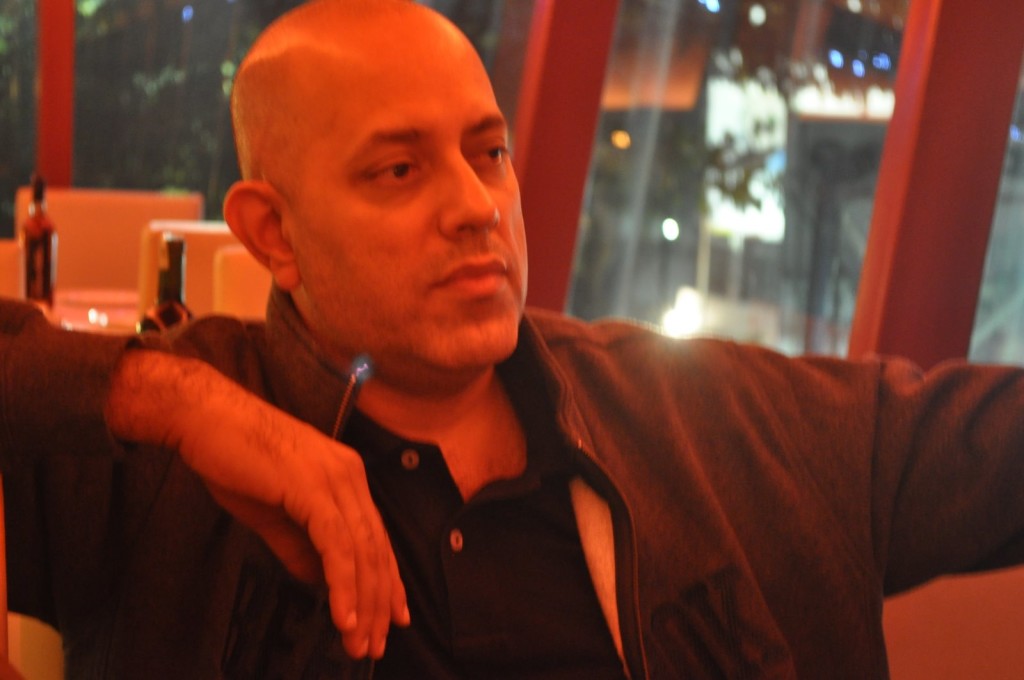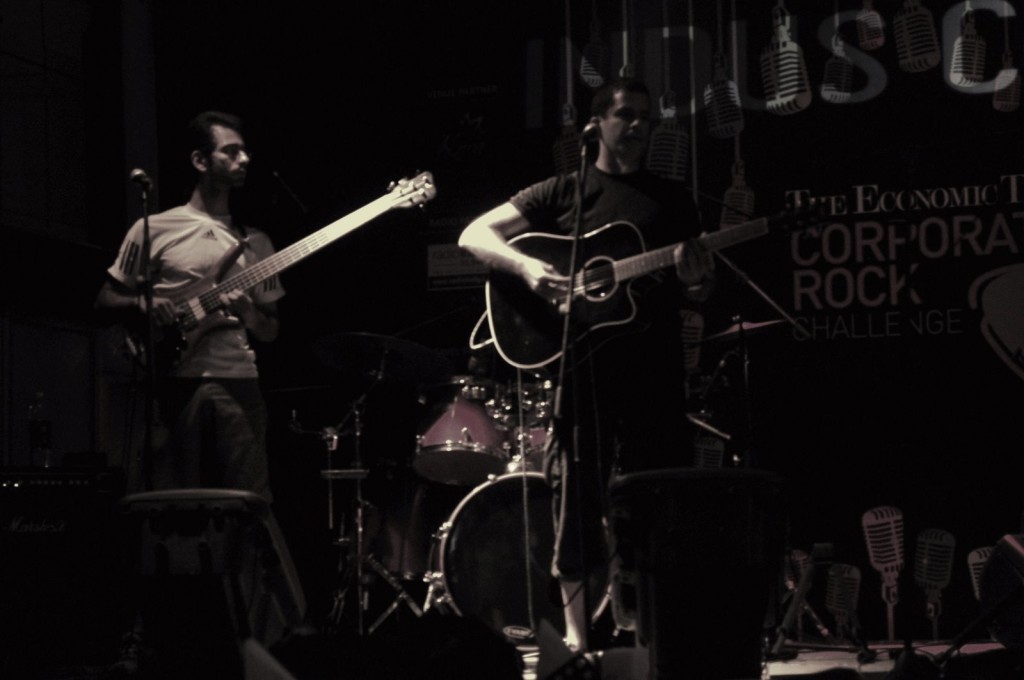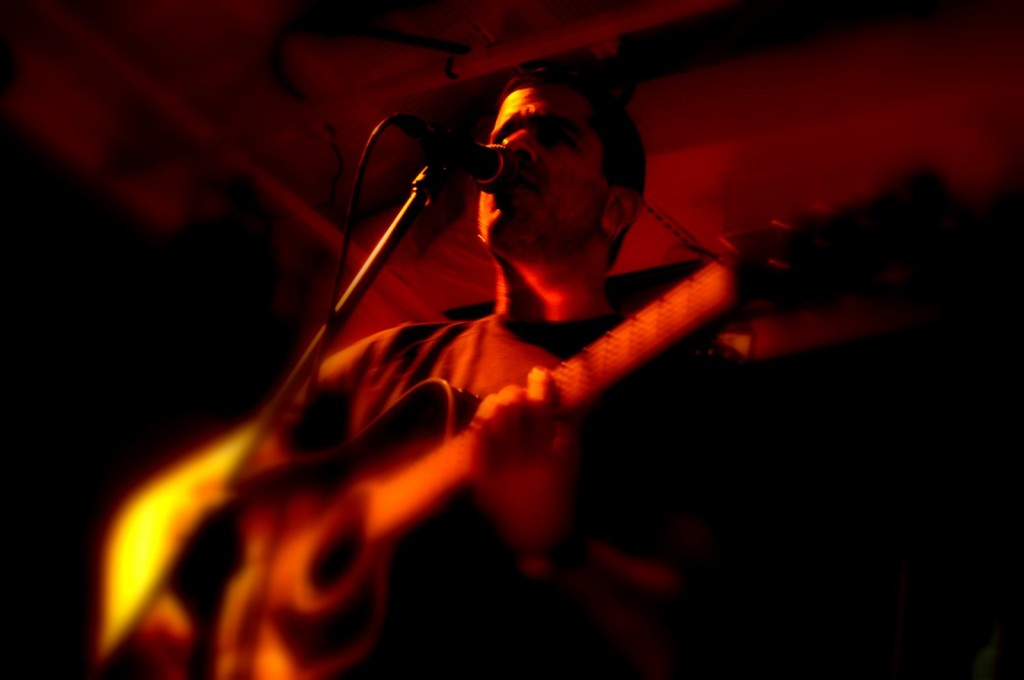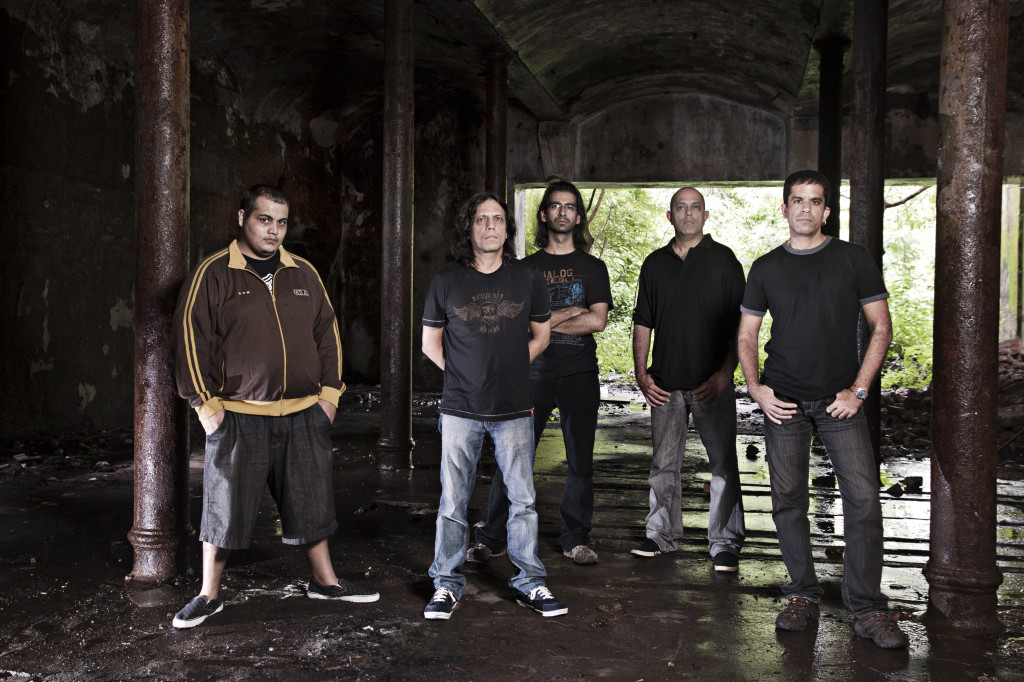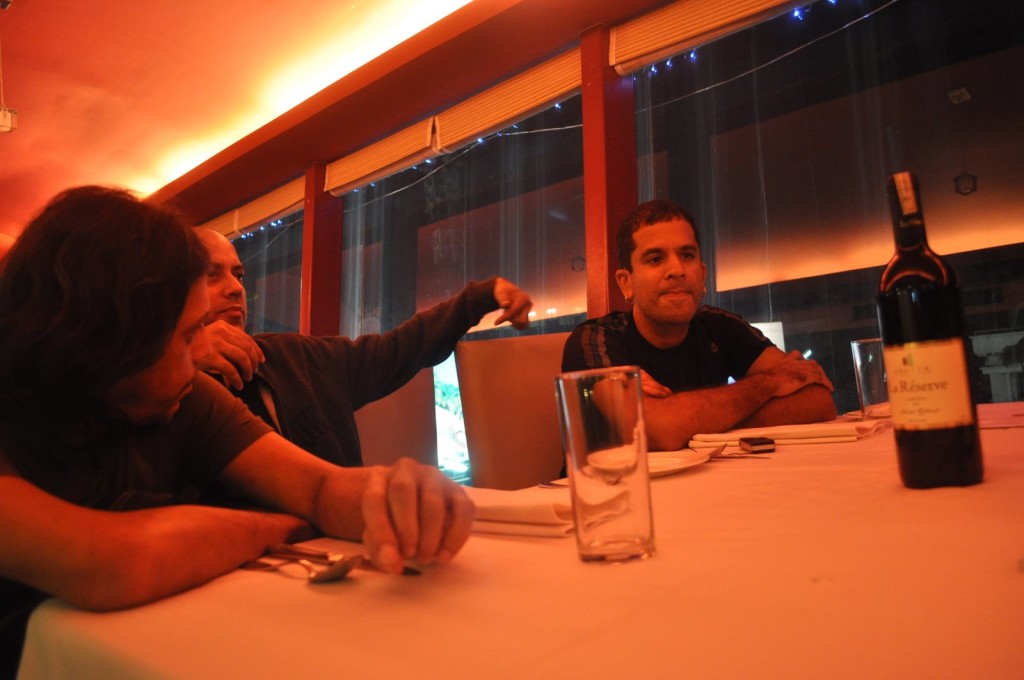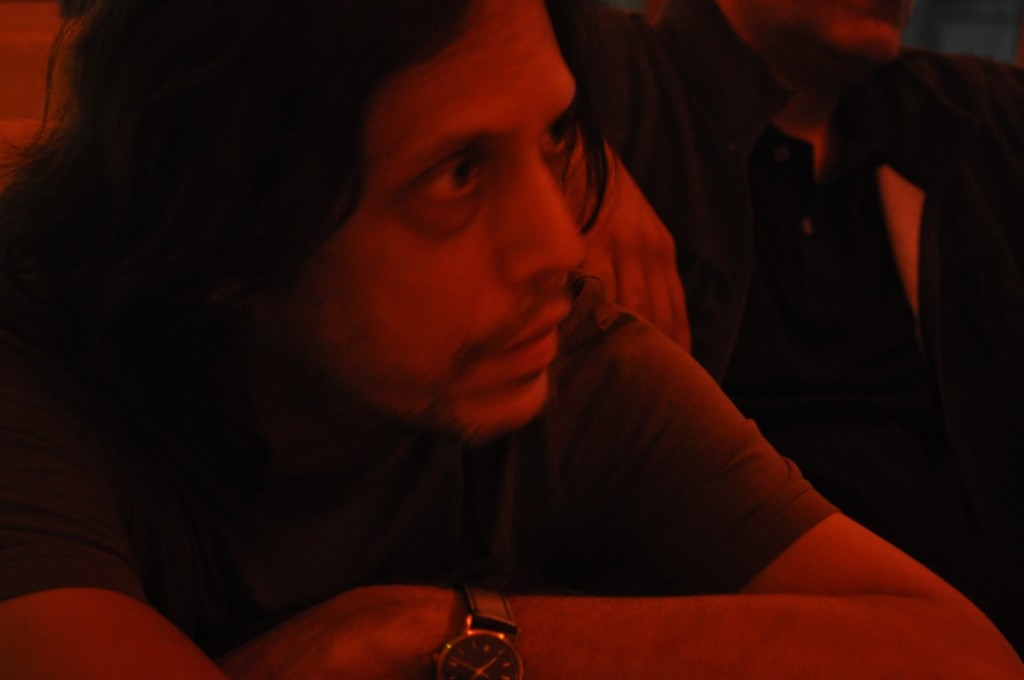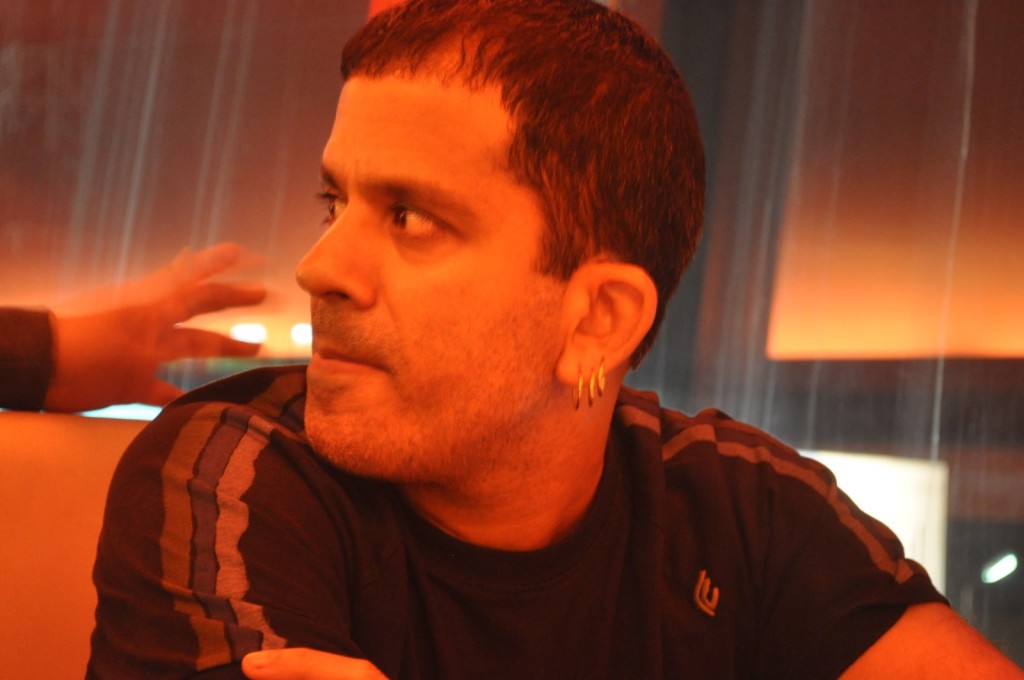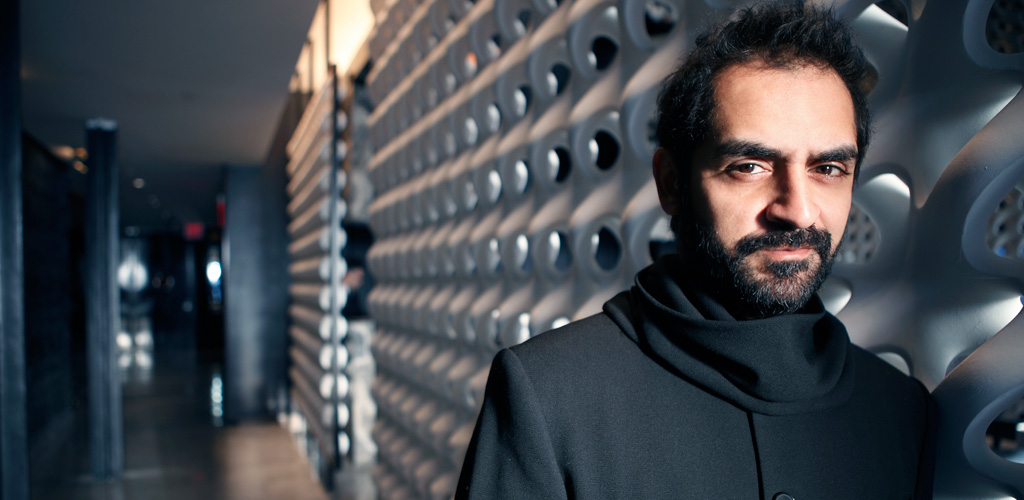
This year, the “Happiest music festival” will see performances by some of the most exciting artists from India and around the world. The fifth edition of Bacardi NH7 Weekender returns this November with a huge lineup of some incredible artists from India and around the world. This year, over 100 artists will play on six different stages at the Bacardi NH7 Weekenders four editions – November 1-2 in Kolkata, November 8-9 in Bangalore, November 21-23 in Pune and November 29-30 in Delhi.
Speaking about this years Bacardi NH7 Weekender lineup, Only Much Louder’s CEO Vijay Nair says, Preparing the lineup of the Bacardi NH7 Weekender is one of the most fun creative processes in the run up of the festival. It is also one of the most challenging. Achieving the right balance of exciting international live performers, one-night-only festival sets, acts that people will discover and fall in love with after catching them live at the festival, and unmissable Indian artists is really important to creating the perfect festival experience. And this year, I think weve managed to strike that balance really well.”
After a successful pre-sale of tickets that sold out in a matter of hours, regular tickets for the festival will be available on Insider.in on Friday, August 22. Fans can gain access to special Community pricing (a significant discount on regular ticket prices) by signing up to the Bacardi NH7 Weekender Community on NH7.in/Weekender. Community registrations will be open for a limited time only.
The Lineup
From critically-acclaimed international headliners, to homegrown musical heroes, this years Bacardi NH7 Weekender lineup has something for all sorts of discerning music lovers. Classic Bacardi NH7 Weekender stages like the Bacardi Arena and The Dewarists return, while recent additions like the Red Bull Tour Bus and this years home of electronic music, mmx.beat, will also host some incredible live performances.
International Artists
The Vaccines
English indie rockers The Vaccines will play their first ever live shows in India at the Pune and Delhi editions of the festival this year. After releasing a critically-acclaimed debut album What Did You Expect From The Vaccines? in 2011 (incidentally, the best-selling debut album in the UK that year), the bands 2012 follow-up Come of Age charted at #1 on the UK charts upon its release. Theyve toured and performed extensively with the likes of The Rolling Stones, Red Hot Chili Peppers, Arctic Monkeys and other huge global rock acts.
Fear Factory
American heavy metal superstars Fear Factory will also be Bacardi NH7 Weekender debutants in Pune and Delhi. A band that has inspired countless young Indian metal acts, Fear Factory have had a long, successful career spanning eight studio albums, the most recent being 2012s The Industrialist, with a new studio release planned for 2014 as well. The band has performed at festivals around the world and for many Indian metal fans, these two gigs have been a long time coming.
MUTEMATH
Valiant US rockers MUTEMATH return to the Bacardi NH7 Weekender after an unforgettable headlining performance at the Delhi edition of the festival in 2013. This year, the band will play the Kolkata and Bangalore editions of the festival, bringing their irresistible energy and unique brand of alternative rock to these cities for he first time. Beloved by rock fans all over, MUTEMATH have released three studio albums and have performed at festivals around the world.
Sarah Blasko
In her decade-long career Sarah Blasko, a singer-songwriter hailing from Sydney, Australia, has released four acclaimed solo albums (I Awake, As Day Follows Night, What The Sea Wants, The Sea Will Have and The Overture & The Underscore). Sarah has composed music for film, theatre and dance, and mesmerised audiences with her stunning live shows across most of Europe, North America and Australia. Her most recent album tour for I Awake was her most ambitious, the highlight being two sold out concerts with a 45 piece orchestra at the iconic Sydney Opera House. Sarah is currently writing her fifth solo album and this is her first time performing in India – she will perform at the Kolkata and Bangalore editions of the festival.
Luke Sital-Singh
British singer-songwriter Luke Sital-Singh emerged on the global music scene when he was announced as part of the BBCs Sound of 2014 longlist. Inspired by the likes of Damien Rice and Ryan Adams, Sital-Singh released his debut album, The Fire Inside, earlier this month. He will perform at the Pune and Delhi editions of the festival.
Songhoy Blues
Garba Touré, Aliou Touré, Oumar Touré and Nathanael Dembélé comprise Songhoy Blues, a rock band from Mali. The band plays, as The Guardian describes it, raucous guitar anthems dedicated to peace and reconciliation. Having cut their teeth in Bamakos club scene, the band recently rounded up a bunch of shows in the UK and will make their first visit to India performing at the Pune and Delhi editions of the festival.
Talal Qureshi
Pakistani electronic music producer Talal Qureshi has been creating music since 2007. His unique electronic sensibilities have earned him praise from the likes of BBC Asian Networks Bobby Friction (himself a performer at the festival in previous years). Qureshis debut EP, Equator, was released in 2012 and highlighted his immense talent and unique approach to electronic beat-making.
Cloud Control
Australian indie rockers Cloud Control shot into the global indie music spotlight with their critically-acclaimed 2013 album Dream Cave. They exist in a dreamy, organic soundscape that has earned them much praise and seen them perform alongside the likes of Arcade Fire, Vampire Weekend and 2010 Bacardi NH7 Weekender alumni The Magic Numbers. Cloud Control will play the Kolkata and Bangalore editions of the festival.
Jon Hopkins
English producer Jon Hopkins started his career playing keyboards for Imogen Heap (who played the 2011 edition of the Bacardi NH7 Weekender). He has produced or contributed to albums from the likes of Brian Eno and Coldplay, while his own brand of electronic music is an ambient soundscape of organic elements and exquisite compositions. It is this attention to detail in composition that has seen him soundtrack films such as Peter Jacksons The Lovely Bones alongside Brian Eno and Leo Abrahams, 2010s indie hit Monsters, and 2013s How I Live Now. Hopkins will play at the Bangalore edition of the festival.
Dinosaur Pile-Up
Formed in 2007, Dinosaur Pile-Up are an English alternative rock band who broke out of the thriving Leeds rock scene of the time and instantly drew favourable comparisons to the cream of ’90s US college rock. Founded originally as a solo project by songwriter and frontman Matt Bigland, the lineup is completed by drummer Mike Sheils and bassist Jim Cratchley. Named after Matt saw the scene in Peter Jacksons remake of King Kong where a stampede of dinosaurs pile up at the foot of a mountain, DPU put out their first official release, The Most Powerful E.P In The Universe, in 2009 and have gone on to record two studio albums, 2010s Growing Pains and 2013s Nature Nurture. The band will play the Pune and Delhi editions of the festival.
Sachal Jazz Ensemble
An international jazz music collaboration led by Pakistan’s Sachal Jazz Ensemble will perform at Delhi edition of the festival this year. They have topped charts around the globe as a world-class jazz ensemble, while braving threats and intimidation and breathing new life into the dying cultural traditions of Pakistan. Hand-picked from a lost generation of classical musicians who used to play in Lahores once-flourishing Lollywood film industry, the Sachal Studios Orchestra has made its name with innovative and irresistible interpretations of well-loved jazz standards. Little wonder theyve been called Pakistans Buena Vista Social Club, and Lahores answer to the Blues Brothers.
Goldspot
A savoury blend of New Jersey and New Delhi, US indie pop act Goldspot have plenty of fans in India. Siddharth Khoslas band has been described by the Los Angeles Times Magazine as A hint of George Harrison at his transcendental best. The bands music has appeared on several popular TV series and films. Their latest album Aerogramme was released in 2013. The band will play the Pune and Delhi editions of the festival.
Motopony
US indie rockers Motopony are a band built on a bedrock of contrasts and the gorgeous alchemy of seemingly conflicted sounds, and the feelings mapped over them. Guided by soulful machines, Daniel Blue along with guitarists Mike Notter and Nate Daley, keyboardist Andrew Butler, and drummer Forrest Mauvais, form a warm efficiency to the hard-soul/glitch-folk contained on the bands self-titled debut and forthcoming follow-up. The band will perform at Pune and Delhi editions of the festival.
Indian Artists
Amit Trivedi
Composer Amit Trivedi has long been hailed as the new voice of Indian film music. His critically-acclaimed work in films like Dev.D, Udaan, and Ishaqzaade have earned him a reputation as being one of the most cutting-edge producers in Indian films. His live performances comprise a vast list of collaborators and performers, and Bacardi NH7 Weekender fans in Bangalore and Delhi should expect memorable live sets.
Skyharbor
Indias biggest metal exports, Skyharbor shot into the global metal spotlight with their 2012 debut album Blinding White Noise: Illusion and Chaos.Their first ever live performance was at the 2011 edition of the Bacardi NH7 Weekender, and since then theyve gone on to play at some of the worlds biggest metal stages, including the Download Festival earlier this year. The band will perform at the Pune and Delhi editions of the festival.
The Raghu Dixit Project feat. Nrityarutya
At the Bangalore edition of the Bacardi NH7 Weekender last year, The Raghu Dixit Project delivered a visual spectacle unlike any the festival had ever seen. The Nrityarutya dance company brought exquisite dance sequences, elaborate props and some truly breathtaking moments to The Raghu Dixit Projects music, including the bands latest album Jag Changa. This year, fans in Pune and Delhi will have the chance to experience this audio-visual treat.
Indian Ocean’s Tandanu
Indian Ocean is synonymous with Indian rock. The bands latest album Tandanu, their seventh studio release, is a series of collaborations with some of the countrys most inventive musicians. At the Kolkata, Pune and Delhi editions of the festival, the band will perform alongside some of these collaborators including Selvaganesh, Shubha Mudgal, Shankar Mahadevan, Pt Vishwamohan Bhat, Kumaresh Rajagopalan, and Vishal Dadlani.
The Manganiyar Classroom by Roysten Abel
Roysten Abels Manganiyar Seduction has been one of the most stunning live performances ever to be staged at the Bacardi NH7 Weekender. Eight years after The Manganiyar Seduction was first conceived, Roysten Abel is back with The Manganiyar Classroom. Unlike the former, Roysten Abels newest production will consist of 40 children of Manganiyar descent. As the name suggests, The Manganiyar Classroom features these talented kids in a classroom setup, complete with a chalkboard. The music illustrates how the right kind of teacher and education is more beneficial than a fixed curriculum. Fans at the Pune edition of the festival will experience this spectacle.
All India Bakchod
All India Bakchod, or AIB (depending on how strict your publications editorial guidelines are), are Indias edgiest comedy collective. Comprised of stand-up comics Tanmay Bhat, Gursimran Khamba, Rohan Joshi and Ashish Shakya, the group are known for their hilarious sketches on their incredibly popular YouTube channel. At the Pune edition of the festival this year, AIB will play their first ever live musical performance.
Bombay Punk United and The Delhi Alternative
The past couple of decades have seen the emergence of several punk and alternative rock acts in Mumbai and Delhi that have added a new dimension to the Indian rock scene. At the Pune and Delhi editions of the festival respectively, Bombay Punk United and The Delhi Alternative will pay tribute to the heroes and the music of this scene with collaborative performances featuring a host of local punk and alt-rock artists. These special sets have been curated by some of the punk and alt-rock scenes most recognizable figures, and promise to take fans through a musical journey that spans Indian and international punk and alt-rock influences.
Monica Dogra
Monica Dogra is usually known for her dynamic vocal and visual performance as ‘Shaair from electro-pop act Shaair + Func – however, this year in Kolkata, Delhi and Pune, we will see her in a new solo avatar where she reveals to us a more personal and vulnerable side. From a young girl growing up in Baltimore to Shaair + Func to finally launching her solo career and performing at the Bacardi NH7 Weekender, shes grown into one of the countrys leading song writers and also one of our most recognizable female voices.
Bhayanak Maut
One of the countrys most exciting metal bands, Bhayanak Maut are veritable legends when it comes to the Indian metal scene. The band has a massive following in all corners of the country, and will release their newest album at this years Bacardi NH7 Weekender. BM will play all four edition of the festival this year.
Pentagram (Unplugged)
Few bands have symbolised the breakout of the Indian independent music scene as well as Pentagram. Comprised of Vishal Dadlani, Randolph Correia, Shiraz Bhattacharya and Makarand Papal Mane, Pentagrams electro-rock sound has defined a generation on indie music fans. At the four editions of the festival this year though, fans will experience another facet of the bands live prowess – a stripped-down Unplugged set featuring reworked renditions of many of the bands popular songs.
Full City-wise Lineups
Kolkata
AlgoRhythm (Mumbai), Ankur & The Ghalat Family (Mumbai), As Animals (France), BREED (India/US), Bhayanak Maut (Mumbai), Blackstratblues (Mumbai), Cloud Control (Australia), Fossils (Kolkata), Gingerfeet (Kolkata), Indian Ocean’s Tandanu featuring Selvaganesh, Kumaresh Rajagopalan, Vishal Dadlani (Delhi), Indus Creed (Mumbai), Maati Baani (Mumbai), Madboy/Mink (Mumbai), Money For Rope (Australia), Monica Dogra (Mumbai), Mr Woodnote & Lil Rhys (Australia), MUTEMATH (US), Nanok (Mumbai), Peking Duk (Australia), Pentagram (Unplugged) (Mumbai), Sarah Blasko (Australia), Shaair + Func (Mumbai), Sickflip (Mumbai), Sky Rabbit (Mumbai), Soulmate (Shillong), Su Real (Delhi), Superfuzz (Delhi), The F16s (Chennai), The Inspector Cluzo (France), Them Clones (Delhi).
Bangalore
Adi & Suhail (Delhi), Amit Trivedi (Mumbai), Ankur & The Ghalat Family (Mumbai), As Animals (France), BREED (India/US), Bhayanak Maut (Mumbai), Blent (Bangalore), Cloud Control (Australia), Delhi Sultanate & Begum X (Delhi), DJ Sa vs DJ Skip (India), Dualist Inquiry Band (India), EZ Riser vs DJ MoCity (India), Jon Hopkins (UK), Klypp (Bangalore), Madboy/Mink (Mumbai), Money For Rope (Australia), Mr Woodnote & Lil Rhys (Australia), MUTEMATH (US), Pangea (Mumbai), Peepal Tree (Bangalore), Peking Duk (Australia), Pentagram (Unplugged) (Mumbai), Sarah Blasko (Australia), Scribe (Mumbai), Sickflip (Mumbai), Skrat (Chennai), Soulmate (Shillong), Spud In The Box (Mumbai), The F16s (Chennai), The Inspector Cluzo (France), The Supersonics (Kolkata), Thermal And A Quarter (Bangalore), Undying Inc (Delhi).
Pune
Adi & Suhail (Delhi), All India Bakchod (Mumbai), Alo Wala (Denmark), Amit Trivedi (Mumbai), BREED (India/US), Bhavishyavani (Mumbai), Bhayanak Maut (Mumbai), Big City Harmonics (Live) (Pune), Bombay Punk United, Castles In The Sky (Pune), Coshish (Mumbai), Curtain Blue (Delhi), Dinosaur Pile-Up (UK), Fear Factory (US), Foreign Beggars (UK), Frame/Frame (Live) (Delhi), Goldspot (US), Indian Ocean’s Tandanu featuring Shubha Mudgal, Shankar Mahadevan, Selvaganesh, Vishal Dadlani (Delhi), Luke Sital-Singh (UK), Madboy/Mink (Mumbai), Monica Dogra (Mumbai), Moniker (Delhi), Motopony (US), Namit Das + Anurag Shankar (Mumbai), Neeraj Aryas Kabir Cafe (Mumbai), Nicholson (Mumbai), Nikhil DSouza (Mumbai), OX7GEN (Live) (Mumbai), Pentagram (Unplugged) (Mumbai), Providence (Mumbai), Reggae Rajahs (Delhi), Sandunes (Mumbai), Sickflip (Mumbai), Skrat (Chennai), Skyharbor (Delhi), Songhoy Blues (Mali), Superfuzz (Delhi), The Bartender (Mumbai), The Down Troddence (Kochi), The F16s (Chennai), The Manganiyar Classroom by Roysten Abel (India), The Raghu Dixit Project feat. Nrityarutya (Bangalore), The Ska Vengers (Delhi), The Vaccines (UK), Thermal And A Quarter (Bangalore), When Pandas Attack (Delhi), Zygnema (Mumbai).
Delhi
Alo Wala (Denmark), Amit Trivedi (Mumbai), Barmer Boys (Rajasthan), Bhayanak Maut (Mumbai), Colossal Figures (Delhi), Dinosaur Pile-Up (UK), EZ Riser vs DJ MoCity (India), Fear Factory (US), Frame/Frame (Live) (Delhi), Ganesh Talkies (Kolkata), Goldspot (US), Hoirong (Delhi), Iamrisha (Delhi), Indian Ocean’s Tandanu featuring Pt. Vishwamohan Bhat, Kumaresh Rajagopalan, Vishal Dadlani (Delhi), Killwish (Delhi), Luke Sital-Singh (UK), Madboy/Mink (Mumbai), Monica Dogra (Mumbai), Motopony (US), Pangea (Mumbai), Pentagram (Unplugged) (Mumbai), Sachal Jazz Ensemble (Pakistan), Sandunes (Mumbai), Skrat (Chennai), Skyharbor (Delhi), Songhoy Blues (Mali), Soulspace (Live) (Delhi), Talal Qureshi (Pakistan), The Delhi Alternative, The F16s (Chennai), The Raghu Dixit Project feat. Nrityarutya (Bangalore), The Supersonics (Kolkata), The Vaccines (UK).
For more information about all of the artists performing at the Bacardi NH7 Weekender 2014, visit NH7.in/Weekender.




























